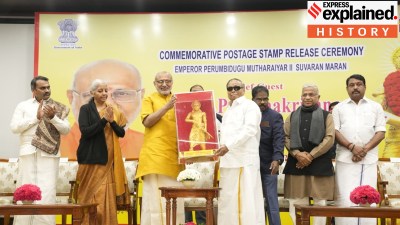Rekha Sharma, BJP Rajya Sabha MP and former chairperson of the National Commission for Women (NCW), said apart from a change in mindset among families, women need education, equal employment opportunities, and property rights to change the lives of women in India.
In an interview with Sukhbir Siwach, Sharma talks about overcoming the challenges India faces in empowering young girls and women:

Q. What is the biggest challenge for women in India?
Rekha Sharma: The Constitution has granted equal rights to women in India, and the government is serious about women-led empowerment.
Prime Minister Narendra Modi has introduced several schemes for women, including 33 per cent reservation for them in Lok Sabha and the state legislative assemblies.
However, the greatest challenge remains the mindset, which begins within families that often discourage women from working.
Women have been relegated to caregiving roles, whereas men should share those responsibilities too.
When women work outside the home, men should contribute at home. This shift can only come through a change in mindset.
Story continues below this ad
Families must recognise equal rights for daughters and provide them with the same opportunities as sons.
In the workforce, women are still underrepresented.
I raised this concern at a meeting chaired by the Union Finance Minister, who spoke about policy changes aimed at increasing women’s workforce participation, including provisions for crèches and maternity benefits.
Q. What is the biggest hurdle in changing the mindset?
Sharma: Lack of awareness and the misuse of the culture’s name as a justification.
I once saw a video where a man claimed he had the right to beat his wife, and people in the background were clapping.
That applause was even more disturbing than his statement.
Story continues below this ad
Their approval reflects how deeply ingrained this mindset is. Until it changes, we cannot consider women truly empowered.
Q. What is the biggest challenge for young girls in India?
Sharma: They’re caught between the attraction of Western values and the responsibility to preserve Indian culture.
Many are uncertain about which path to follow, largely due to a lack of parental guidance.
I believe guidance is essential for both girls and boys until the age of 18.
Story continues below this ad
We need to uphold Indian values, but also recognise the strengths of developed countries, such as independence and decision-making skills.
Q. How do you see the issue of women’s share in property?
Sharma: This is a major issue. Daughters have equal property rights under the law, just like sons, but it must be enforced by families.
Too often, property is reserved for sons, and daughters are offered dowries instead.
Nearly two-thirds of women work in agriculture, yet the land isn’t in their names.
Story continues below this ad
Equal property rights would offer women a sense of security.
A woman who owns property is less likely to endure domestic violence, because her husband knows she has a place to go.
Many women stay in abusive homes simply because they have nowhere else.
Granting daughters a share in property could create a massive social shift.
Story continues below this ad
Q. What is the biggest step needed to change the lives of women?
Sharma: Education, equal employment opportunities, and property rights.
Education is crucial — without it, women won’t even be aware of their property rights.
It’s the foundation for accessing opportunities of any kind.
Q. What should be the key area of focus for girls?
Sharma: They should aim to become financially independent and make their own life decisions.
Story continues below this ad
Even if they make mistakes, they’ll learn and grow. Life should be lived on one’s own terms.
Q. What is the BJP’s role in ensuring property rights for women?
Sharma: The BJP supports legal provisions that promote gender equality.
Prime Minister Modi has repeatedly spoken in favour of equal property rights for daughters.
This is the party’s official stance. While daughters automatically inherit ancestral property, in the case of self-earned property, the father must explicitly mention the daughter in his will.









